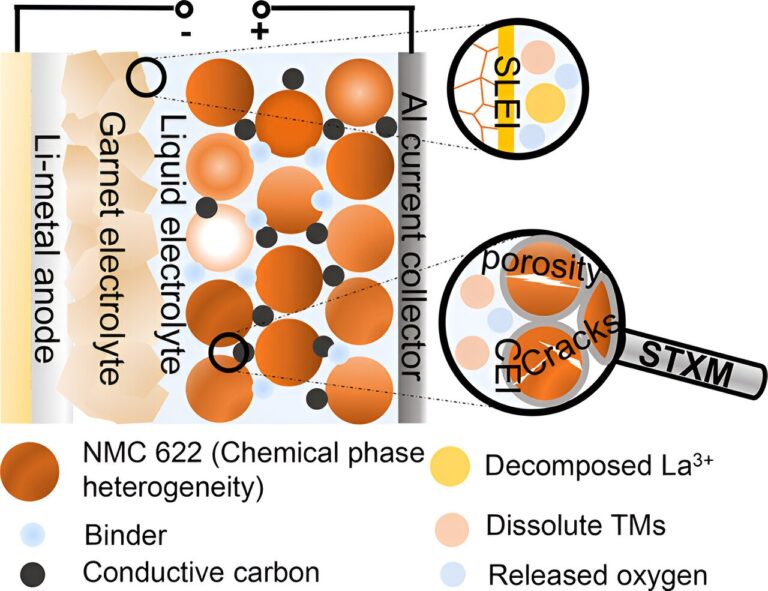Lithium-ion batteries contain flammable materials that could pose a safety risk under certain conditions. Dr. Yaser Abu-Lebdeh is one of the researchers using the Canadian Light Source (CLS) at the University of Saskatchewan to develop a safer alternative: solid-state batteries.
Solid-state batteries replace the flammable liquid electrolyte in conventional batteries with a solid ceramic-based material to pass charge through the battery.
“These oxide-based ceramics, or ceramic oxides, are intrinsically safe, meaning they’re not volatile, they’re not flammable,” says Dr. Abu-Lebdeh, a team leader with the National Research Council of Canada’s battery materials innovation team.
The batteries have another major advantage: they enable the use of lithium metal and, hence, are able to hold a great deal of charge in a small space, making them powerful energy storage devices.
As with any new technology, there have been hiccups in the development.
“We’ve run into a problem where the batteries lose their capacity very quickly, meaning they die out very, very quickly,” says Dr. Abu-Lebdeh.
Standard lab techniques couldn’t pinpoint what was causing the early failure, so Dr. Abu-Lebdeh turned to his longtime collaborators at the CLS. Using synchrotron light—which is particularly well suited for studying batteries—they were able to identify the root causes of the battery’s premature failure: a combination of tiny structural changes and chemical changes happening in two different parts of the battery.
Dr. Abu-Lebdeh says the new insights will help them improve the mix of solid and liquid parts and how these batteries are put together. They published the results in the Journal of Physical Chemistry.
Next up, the team plans to use the CLS to study the batteries operating in real-time to help develop longer-lasting battery components.
“We were glad to partner with the CLS on this project and to have access to their characterization techniques that enabled us to complete the work to a standard of quality that met our specific needs,” says Dr. Abu-Lebdeh.
More information:
Shuo Yan et al, Elucidating the Origins of Rapid Capacity Fade in Hybrid Garnet-Based Solid-State Lithium Metal Batteries, The Journal of Physical Chemistry C (2023). DOI: 10.1021/acs.jpcc.3c05419
Canadian Light Source
Read the full article here








